‘Stay clear’: Rebel group’s warning to Twiggy
Australian mining billionaire Twiggy Forrest has been issued a severe warning over a multibillion-dollar scheme.
Mining
Don't miss out on the headlines from Mining. Followed categories will be added to My News.
EXCLUSIVE
A North African separatist group waging a guerrilla war against the Moroccan government has warned Australian mining magnate Andrew ‘Twiggy’ Forrest to “stay clear” of its disputed territory.
It is asking him to reconsider a multibillion-dollar green energy scheme it claims will help fund ongoing repression and human rights abuses against the native population.
The Polisario Front, a rebel nationalist liberation movement of the Sahrawi people, has been fighting for independence for the Western Sahara region since 1975, when it was given up as a Spanish colony and subsequently claimed by Morocco to its north and Mauritania to its south.
Covering an area the size of Great Britain in northwest Africa with a long stretch of coastline on the Atlantic Ocean, Western Sahara is rich in minerals and natural resources, particularly fisheries, sitting just opposite the Canary Islands.
Tarfaya, a small fishing town in southwestern Morocco only 35 kilometres from the disputed border with Western Sahara, is the intended site of a new green ammonia production centre by OCP Group, the Moroccan state-owned phosphate miner and fertiliser producer which in April announced a major joint venture with Perth-based Fortescue.
Kamal Fadel, the Australian spokesman for the Polisario Front, said there were grave concerns about Fortescue’s “involvement with a regime that has a bad human rights record, violation of international law and occupation of territory”.
“This investment … in Morocco gives it the funds to buy arms, to feed the army that is occupying Western Sahara,” Mr Fadel told news.com.au.
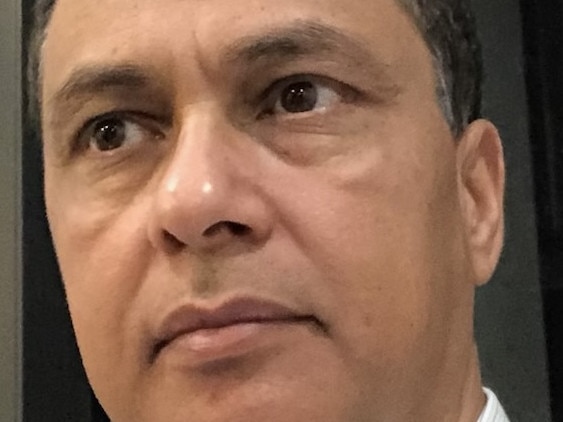
“And it also encourages Morocco not to resolve this issue and emboldens its decision not to co-operate with the UN, its defiance of the international community. This creates concerns for us — we understand Fortescue does not go and invest in other regions where there is a war or invasion or aggression, but in this case they are doing that. We want them to stay clear of Western Sahara, not to get involved.”
Fortescue has insisted none of its plans touch the disputed territory.
But Mr Fadel said it was not that simple, noting that OCP Group’s Bou Craa mine, which is located in Western Sahara, contributes around 10 per cent of its total phosphate extraction volume and 20 per cent of its total export phosphate.
“It’s a big component,” Mr Fadel said.
“We know the joint venture between Fortescue and OCP involves enhancing the green fertiliser production, so there is a connection there. We just think the whole involvement of this company in Morocco at this time undermines the UN process, and is likely to extend the suffering of our people who have suffered for about 50 years of an invasion and occupation of their homeland.”
A Fortescue spokesman on Friday reiterated that “none of Fortescue’s proposed projects in Morocco are in the disputed region”.
“The OCP Fortescue joint venture is progressing expeditiously,” he said.
The global fertiliser supply shock following Russia’s invasion of Ukraine in 2022 sparked a major boom for the North African phosphate superpower — which sits on about 70 per cent of global reserves — bringing in record revenue and lending the kingdom increased international leverage to push its claim over Western Sahara.
Australia’s Department of Foreign Affairs and Trade (DFAT) notes that “given the status of Western Sahara as a non-self-governing territory, there are international law considerations with importing natural resources sourced from Western Sahara”.
“We recommend that companies seek legal advice before importing such material,” DFAT says.
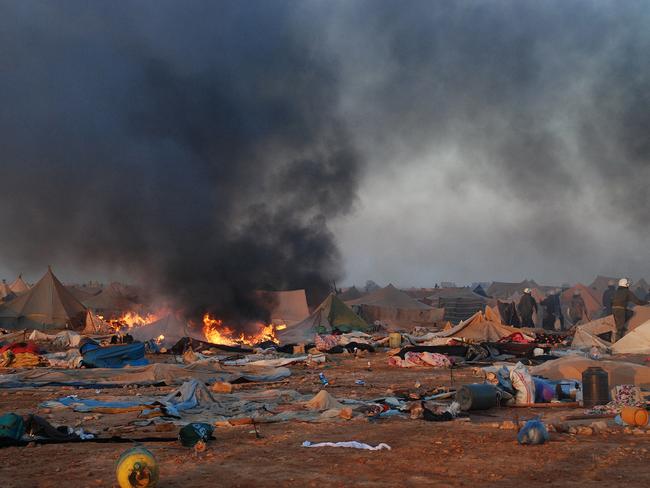
‘Brutal occupation’
The United Nations and the International Court of Justice have recognised the right of self-determination for the roughly one million Sahrawi people.
Mauritania abandoned its claim in 1979 in the face of relentless attacks by Polisario fighters, but Morocco continued to claim sovereignty over the territory, which it considers an integral part of its kingdom.
Morocco has long rejected demands to hold a referendum on Sahrawi independence.
The Sahrawi Arab Democratic Republic (SADR) is considered a partially recognised state, recognised by several dozen mainly African and Arab UN members, notably Iran and neighbouring Algeria, which hosts a number of Sahrawi refugee camps and has long supported the Polisario cause.
A UN-backed ceasefire was signed in 1991, but fighting between the two groups broke out again in 2020, and the Polisario Front has this year launched attacks on Moroccan troops in the region.
Human rights groups have accused Morocco of serious abuses in its brutal crackdown on the Sahrawi, including torture and forced confessions.
In one recent incident, Moroccan police “arbitrarily detained” a man “after he appeared in a video of a Spanish tourist saying that he was a proud Sahrawi and favoured the self-determination of his people”, according to Amnesty International.
“The officers tortured and otherwise ill-treated him by cuffing and hooding him, slapping his face, spitting on him, and threatening to rape him and kill him using acid,” the group said in its 2023 report.
Human Rights Watch says Moroccan authorities “systematically prevent gatherings supporting Sahrawi self-determination, obstruct the work of some local human rights NGOs, including by blocking their legal registration, and on occasion beat activists and journalists in their custody and on the streets, or raid their houses and destroy or confiscate their belongings”.
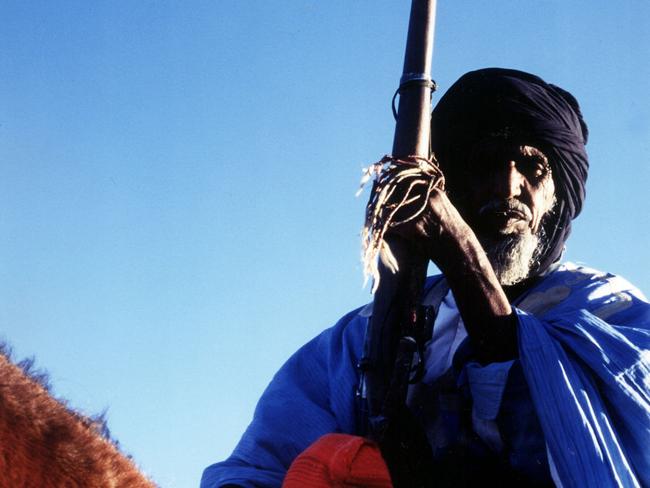
“Human Rights Watch documented some of these beatings and raids, including of the house of independence activist Hassana Duihi,” the group’s 2021 report said.
“In 2021, 19 Sahrawi men remained in prison after they were convicted in unfair trials in 2013 and 2017 for the killing of 11 security force members, during clashes that erupted after authorities forcibly dismantled a large protest encampment in Gdeim Izik, Western Sahara, in 2010. Both courts relied almost entirely on their confessions to the police to convict them, without seriously investigating claims that the defendants had signed their confessions under torture.”
Mr Fadel said it had been a “very brutal occupation”.
“Kidnapping people, imprisoning them, torturing them, most of them end up dying in prison after decades,” he said.
“There is no basic respect of human rights in Western Sahara. The people have suffered a lot and are still suffering. The regime in Morocco is an autocratic, tyrannical regime, it is an absolute monarchy where the King rules and he’s the richest person in Morocco because he controls all the business there, all the major companies.”
Morocco, for its part, has accused Iran and its Lebanese Shi’ite proxy, Hezbollah, of training and arming the Polisario Front — a claim denied by Iran — and has also accused Polisario of working with Sunni terror group al-Qaeda.
Mr Fadel maintains this is “baseless Moroccan propaganda”.
The Sahrawi people are largely Sunni Muslim.
“During the Cold War they were saying we were communists, when that was not the fashion anymore they said we are linked to al-Qaeda, and when that was not working now they link us to Shi’a Iran and Hezbollah,” Mr Fadel said.
“When Morocco was asked to provide evidence of this link they couldn’t provide anything. It’s just to create fear amongst the international community.”
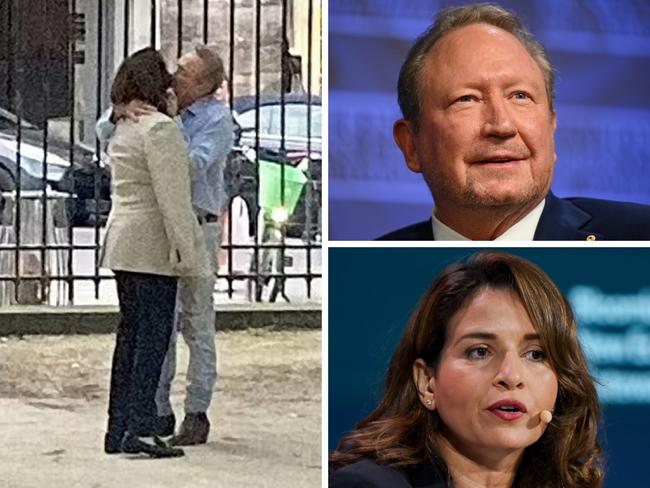
‘Strategic partnership’
In April, ASX-listed Fortescue announced the joint venture with OCP Group, one of the world’s biggest phosphate miners, with the aim of supplying green hydrogen, ammonia, and fertilisers to Morocco, Europe and international markets.
The deal includes the potential development of manufacturing facilities and an R&D hub to advance the rapidly growing renewable energy industry in Morocco, the miner said in the announcement.
“Our strategic partnership with Fortescue is a testimony to our joint commitment to decarbonisation, driving the development of cutting-edge facilities and delivering competitive renewable energy, products and technology,” OCP Group chairman and chief executive Mostafa Terrab said in a statement at the time.
“This is a key step towards fulfilling our vision of simultaneously ensuring global food security and combating climate change.”
Mr Forrest, executive chair and founder of Fortescue, said in the announcement that the two companies “will build a world-leading and globally competitive platform to accompany Morocco’s journey into a green energy production, manufacturing, and industrial powerhouse”.
“Together, we will be a key originator and green corridor into Europe and to and from the Atlantic basin,” he said.
“Morocco will be a major player in the global energy transition given it is home to some of the world’s most prospective wind and solar resources, two large coastlines, and is in close proximity to Europe and the Americas.”
OCP Group, which generated more than $US9 billion ($13.5 billion) in revenue last year, recently launched a green investment strategy centred on increasing fertiliser production to 20 million tonnes a year, up from 12 million tonnes in 2022, and investing in renewable energy.
“The strategy foresees an overall investment of approximately $US13 billion ($19.5 billion) over the period 2023-2027, which will enable the group to use 100 per cent renewable energy by 2027 and achieve full carbon neutrality by 2040,” it said.
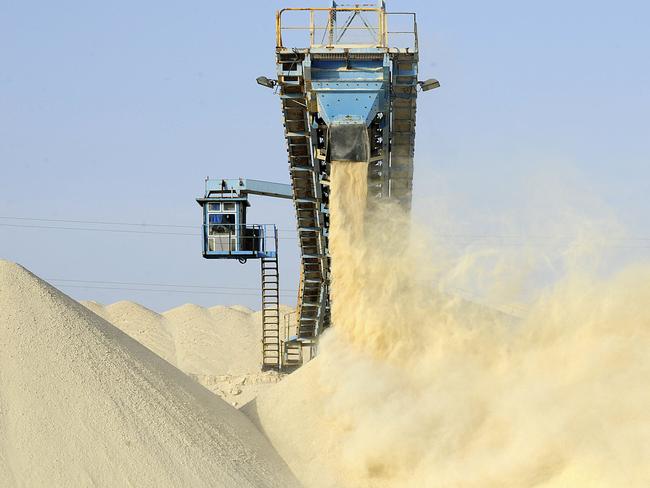
The Morocco joint venture made headlines this week after Mr Forrest, 62, who separated from his wife Nicola last year, was photographed by The Daily Mail kissing a mystery woman on a stroll in Paris.
The woman was later named by The Australian newspaper as Leila Benali, Morocco’s energy minister — who also sits on the board of OCP Group.
Several days later, Ms Benali, through the country’s energy ministry, issued a carefully worded statement which slammed the “offensive” reports and seemed to deny that she was the woman in the photo.
Fortescue has repeatedly refused to confirm or deny the reports naming Ms Benali — even after her denial — or comment in any way on the photo.
A Fortescue spokesman said earlier this week only that the team was “working with key stakeholders as we continue to develop our ambitious strategy with OCP, developed over more than two years, to develop green energy, hydrogen and ammonia in Morocco”.
“We are committed to working with OCP to build a world-leading and globally competitive platform to accompany Morocco’s journey into a green energy production, manufacturing and industrial powerhouse,” he said.
Mr Fadel said he was in the process of writing directly to Mr Forrest on behalf of the Polisario Front.
“The message to him would be to think about the plight of these people,” he said.
“We know he’s very philanthropic and wants to help charities, and he has been very vocal in the Ukraine war and he also wants to care about the world and the environment. But it’s no good to just care about the environment and make people suffer. A good environment without respect of people’s rights as human beings is no good. It might be good for business but it’s not good for us and for human rights.”
Asked if he believed Mr Forrest was previously aware of the concerns of the Sahrawi, Mr Fadel said the billionaire was “a very clever guy”.
“The problem now is that emotions are involved,” he added.
Originally published as ‘Stay clear’: Rebel group’s warning to Twiggy





